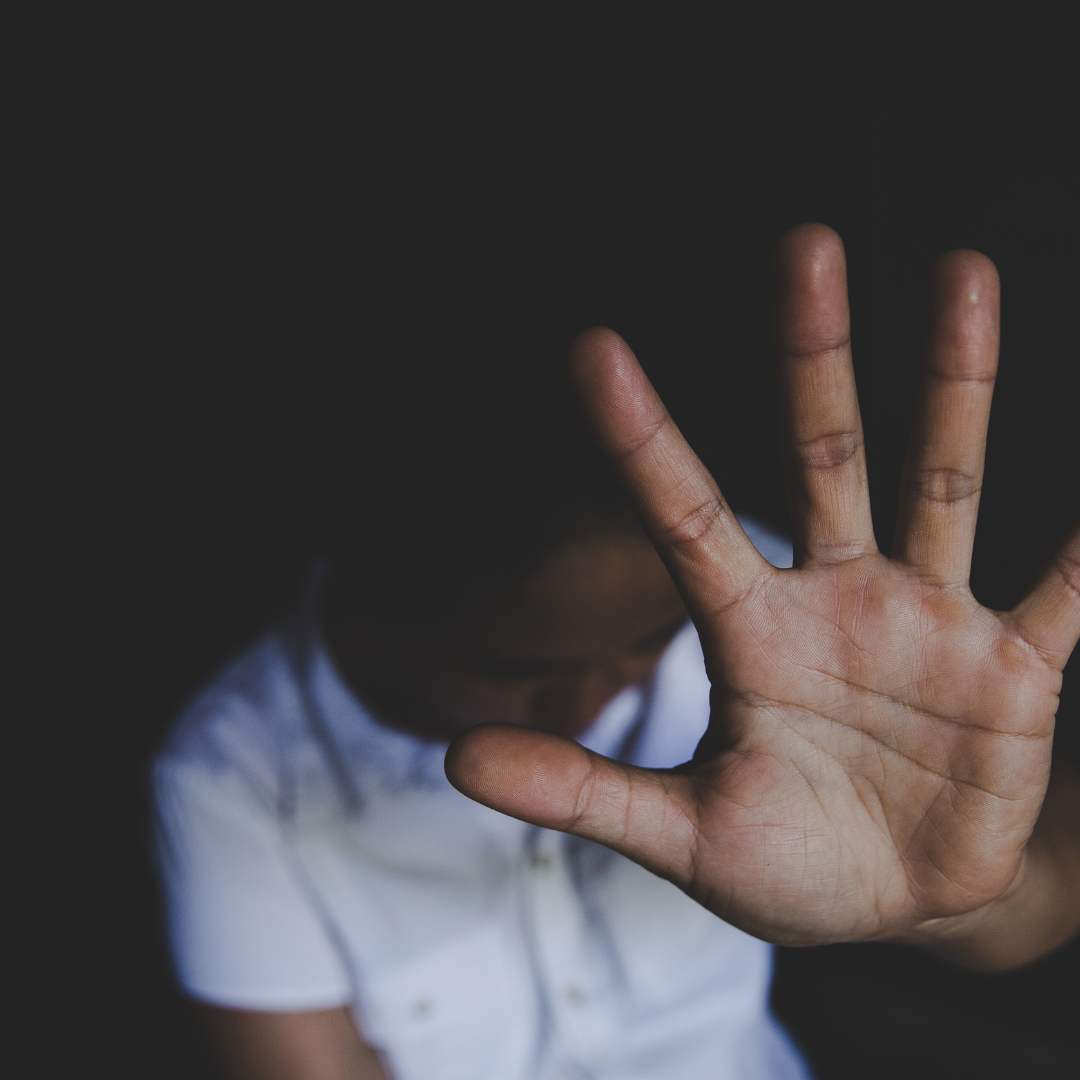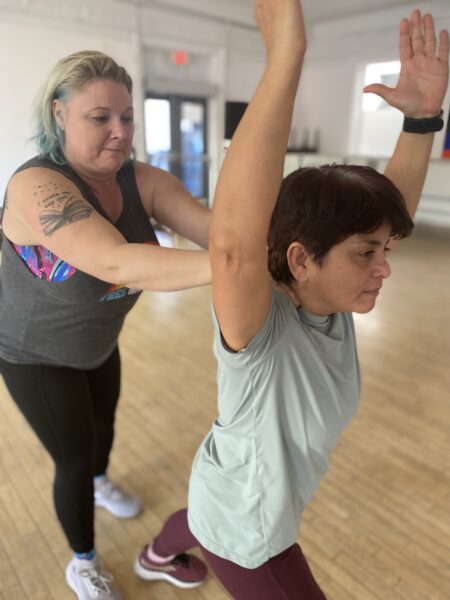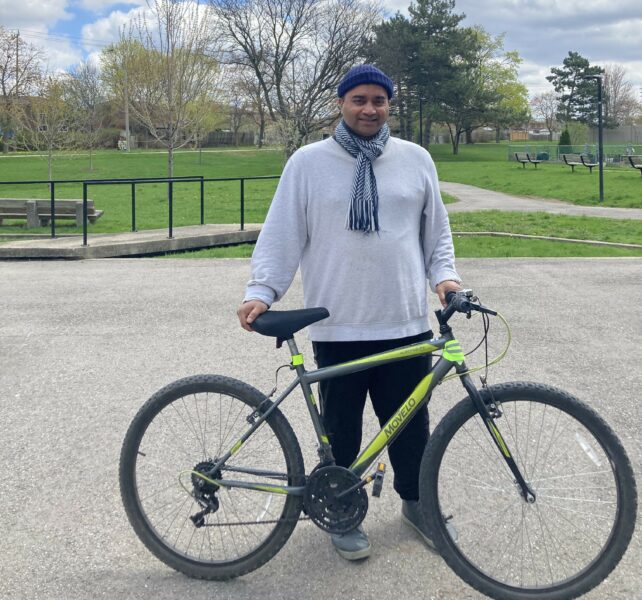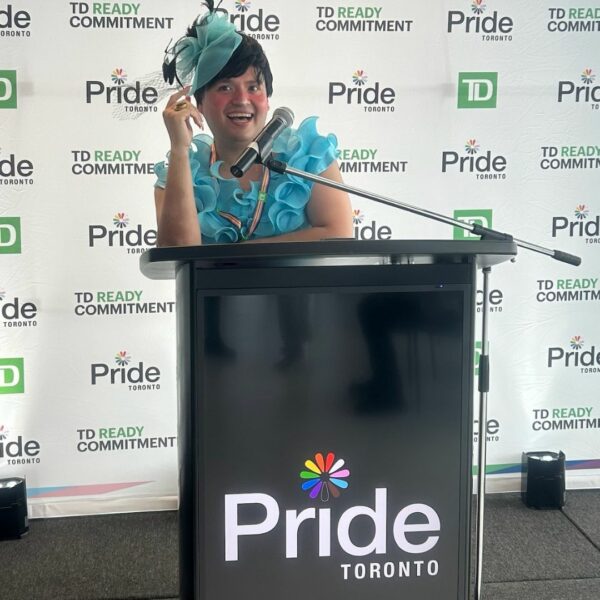
Gender-based violence is a significant factor that can lead to homelessness for many women. In particular, Black women may flee abusive situations without the financial means or social support to secure stable housing. This can result in an increased risk of further violence, including sexual violence. During Black History Month, it is crucial to reflect on the intersection of race, gender, and socio-economic status and how these factors contribute to the heightened vulnerability of black women experiencing homelessness.
An interview with our client, LB, reveals a complex and courageous story, one that reflects the experiences of many black women.
LB is 61 years old and a former client of Kennedy Shelter but has since moved into our her own supportive housing a Homes First. LB identifies as a heterosexual, cisgender, able-bodied woman that faces health challenges. She is a mother, grandmother, and auntie. She came to Toronto in 1983 with four other siblings as an immigrant who reunited with their mother.
Why are women – particularly black women – and other vulnerable populations the main targets of sexual violence?
Black women often confront a society that fails to adequately protect them, perpetuating a historical narrative of exploitation and discrimination—a lingering shadow of slavery.
LB’s life has been marred by two significant traumas, which have left an indelible mark on her mental health. Despite her proactive efforts to seek help, she encountered barriers to receiving adequate mental health support, as she was deemed not to be in immediate danger to herself and therefore not fitting the criteria for assistance.
During the Covid-19 pandemic, a counselor from a community agency provided LB with check-ins and one-on-one support sessions. However, the systemic support was sporadic and insufficient. LB has since redirected her focus towards positivity and self-care, striving to be the best version of herself, despite the gaps in mental health services.
How does sexual violence affect the lives of black women, as well as all women and vulnerable individuals?
LB highlights the cultural expectations placed on women to be submissive, emphasizing the need for society to believe and support women who come forward. She points to the #metoo movement as a catalyst for change, encouraging social mobilization as a means for women to share their stories and seek justice.
Gender-based violence (GBV) and intimate partner violence is an epidemic in Toronto. What kind of services should be available to support survivors of sexual violence?
For survivors of sexual violence, LB identifies mental health support as a critical need. She advocates for better access to psychiatric services to aid in the healing process.
LB acknowledges Toronto’s recognition of gender-based violence (GBV) as an epidemic. She calls for comprehensive education campaigns, targeted initiatives for specific vulnerable populations, increased funding, and concrete action. She notes the lack of public education and engagement from local government representatives.
LB’s message of encouragement to society and communities of African descent to fight sexual violence...
LB urges society and communities of African descent to prioritize communication, education, and the establishment of community safety signals. She emphasizes the importance of engaging with children and youth, promoting education and prevention at the grassroots level. LB also underscores the necessity of providing housing for women who are survivors of GBV, drawing from her own experience of gaining independence and security through her own unit in one Homes First supportive housing sites.
Finally, LB stresses the importance of language skills for black women in Toronto, recognizing that proficiency in language can unlock opportunities and foster self-advocacy. She encourages other black women to focus on enhancing their language abilities as a means of empowerment.
LB’s experiences and insights shed light on the multifaceted challenges of sexual violence against black women, while also offering a message of hope and empowerment through community support, education, and personal growth.
Reach out: Crisis lines
The crisis lines listed below are free of charge and available 24 hours a day, seven days a week. They can provide emotional support, crisis counselling, safety planning, referrals, information and assistance with urgent moves.
Anishinabe Women’s Crisis Line: 1888-200-9997
Assaulted Women’s Helpline: 1866863-7868 or 416863-0511 or TTY1866-863-0511
Hope24/7/PeelRapeCrisisCentreLine: 1800-810-0180
La Maison Toronto Crisis Line (French speaking): 647777-6433
Femaide (for French-speaking women):1877-336-2433orTTY1866-860-7082
The Redwood 24/7 Crisis Line: 416533-8538
Toronto Rape Crisis Centre: 416597-8808
Resources to support gender violence-based survivors:
Resources for Women Experiencing Abuse
CAMH – Survivors of Domestic Violence
Gender-Based Violence Prevention and Response – Toronto Central


